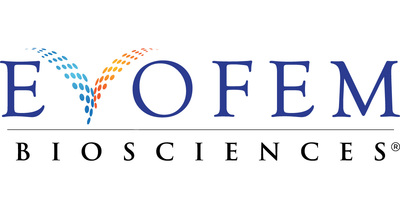Evofem Biosciences Announces Publication in Peer-Reviewed Journal Advances in Therapy
Evofem Biosciences, Inc. (NASDAQ: EVFM) announced the publication of a manuscript in Advances in Therapy, discussing variability in contraceptive clinical trial designs and their impact on efficacy outcomes. The study highlights challenges in comparing efficacy across non-hormonal and hormonal contraception due to variations in trial protocols. Key findings show that the exclusion of certain menstrual cycles can misrepresent the effectiveness of contraceptives. The paper aims to raise awareness among healthcare providers regarding these nuances, thereby improving contraceptive counseling.
- Publication in a peer-reviewed journal enhances credibility.
- Study addresses significant issues in contraceptive efficacy, potentially influencing better clinical practices.
- Variability in clinical trial designs could undermine confidence in existing efficacy comparisons.
- Exclusion criteria in trials may mislead healthcare providers in counseling, impacting patient trust.
Insights
Analyzing...
SAN DIEGO, Sept. 27, 2021 /PRNewswire/ -- Evofem Biosciences, Inc., (NASDAQ: EVFM) today announced that a manuscript on the variability of contraceptive clinical trial design and its impact on efficacy outcomes has been published in the peer-reviewed journal Advances in Therapy.
"The high degree of variation in the design of contraceptive clinical trials makes comparison of efficacy outcomes challenging, particularly when comparing non-hormonal versus hormonal contraception," said David L. Einsenberg, MD, of the Department of Obstetrics and Gynecology, Washington University in St. Louis School of Medicine, and an author of the paper. "Health care providers should be aware of the nuances in trial design that make direct comparisons about relative efficacy challenging in order to effectively counsel patients choosing a contraceptive method."
Rules related to cycle length, the absence of documented vaginal intercourse during the cycle, and the concomitant use of another birth control method have excluded menstrual cycles from the efficacy analysis in some trials but not in others. Variations in the number of menstrual cycles included affect efficacy outcomes, i.e, fewer menstrual cycles leads to higher failure rates.
For two of the most commonly used methods of calculating efficacy, the Pearl Index and the time-to-event analysis, inclusion of fewer menstrual cycles results in higher calculated failure rates. This is an important consideration when comparing findings from studies of varying duration, e.g. seven-cycles versus 13-cycles.
Study authors also note that exclusion of cycles in which no intercourse is documented and/or another method of contraception is used is not reflective of how contraceptives are used in the real-world.
"Comparing efficacy across products with varying clinical trial designs is like comparing apples to oranges," said Brandi Howard, PhD, Evofem Biosciences' Head of Medical Affairs. "Unfortunately, many clinicians do not understand the nuances across clinical trials and therefore can provide misleading contraceptive counseling to women choosing a contraceptive method. We hope that increasing awareness with publications such as this one, in addition to our robust Medical Education activities, will help to improve the accuracy of contraception counseling messages."
The manuscript, entitled Variability in Contraceptive Clinical Trial Design and the Challenges in Making Comparisons Across Trials, is available online in the Posters & Publications section of Evofem's website and at https://link.springer.com/article/10.1007/s12325-021-01915-3 (Open Access).1 The manuscript is expected to publish in an upcoming print edition of Advances in Therapy.
About Evofem Biosciences
Evofem Biosciences, Inc., (NASDAQ: EVFM) is developing and commercializing innovative products to address unmet needs in women's sexual and reproductive health, including hormone-free, woman-controlled contraception and protection from certain sexually transmitted infections (chlamydia and gonorrhea). The Company's first FDA-approved product, Phexxi® (lactic acid, citric acid and potassium bitartrate), is a hormone-free, on-demand prescription contraceptive vaginal gel. It comes in a box of 12 pre-filled applicators and is applied 0-60 minutes before each act of sex. Learn more at phexxi.com and evofem.com.
Phexxi® is a registered trademark of Evofem Biosciences, Inc.
1 Portman, D. et al. Variability in Contraceptive Clinical Trial Design and the Challenges in Making Comparisons Across Trials. Adv Ther (2021). https://doi.org/10.1007/s12325-021-01915-3
Investor Relations Contact
Amy Raskopf
Evofem Biosciences, Inc.
araskopf@evofem.com
Mobile: (917) 673-5775
![]() View original content to download multimedia:https://www.prnewswire.com/news-releases/evofem-biosciences-announces-publication-in-peer-reviewed-journal-advances-in-therapy-301385318.html
View original content to download multimedia:https://www.prnewswire.com/news-releases/evofem-biosciences-announces-publication-in-peer-reviewed-journal-advances-in-therapy-301385318.html
SOURCE Evofem Biosciences, Inc.








